عبدالقیوم چوہدری
محفلین
It was during the Burma Campaign in 1944 when Burmese Independence Army, trained by the Japanese, led initial attacks on the British forces. The Allied forces; British, Chinese and Americans were fighting against the axis powers; forces of the Empire of Japan
The soldiers from the British side came mostly from British India and amongst the forces was a 20-year-old boy named Muzafar Khan. Hailing from the district of Chakwal in present day Pakistan, he fell in love with a Burmese girl during his tenure in Burma
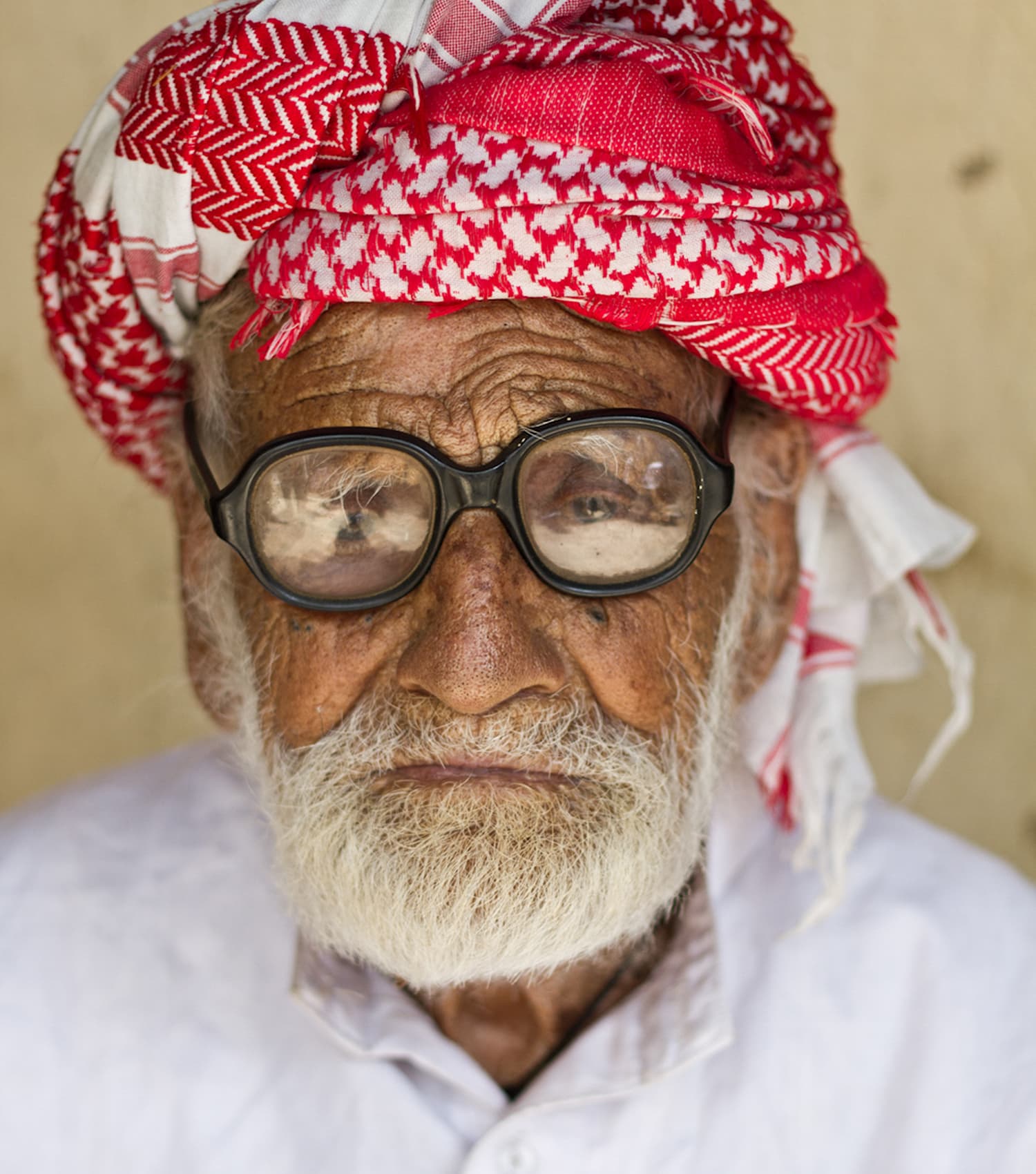
Muzaffar (Chacha Kalu) is pictured at his house in Chakwal. - Photo by author
Young Muzafar was deployed as a solider in the ordinance corps of the British Indian Army in mid 1940s and was sent to Burma on a mission along with other soldiers to combat Japanese forces under Field Marshal William Slim
The Burmese girl he fell in love with later became his wife and now they live together in a small neighbourhood of Dhudial, a town 43 kilometres south of the Grand Trunk Road on main Mandra-Chakwal Road in the Chakwal district of Punjab
The tale of their love and how they came to Dhudial revolves around the neighbourhood with slight variations narrated by their relatives, friends and the couple itself
92-year-old Muzafar is now known as Chacha Kalu in his neighbourhood while Ayesha Bibi who is now 84 is referred to as Mashoo
The memory of mid-1940s has faded with time and the only truth surviving the two is that they are married with no children and Mashoo left her entire life in Burma to settle in British occupied India.
As I walk through narrow alleys of the neighbourhood, I am asked to enter a small house with a rectangular room that has a wooden sofa on one side and a wooden charpoy on another
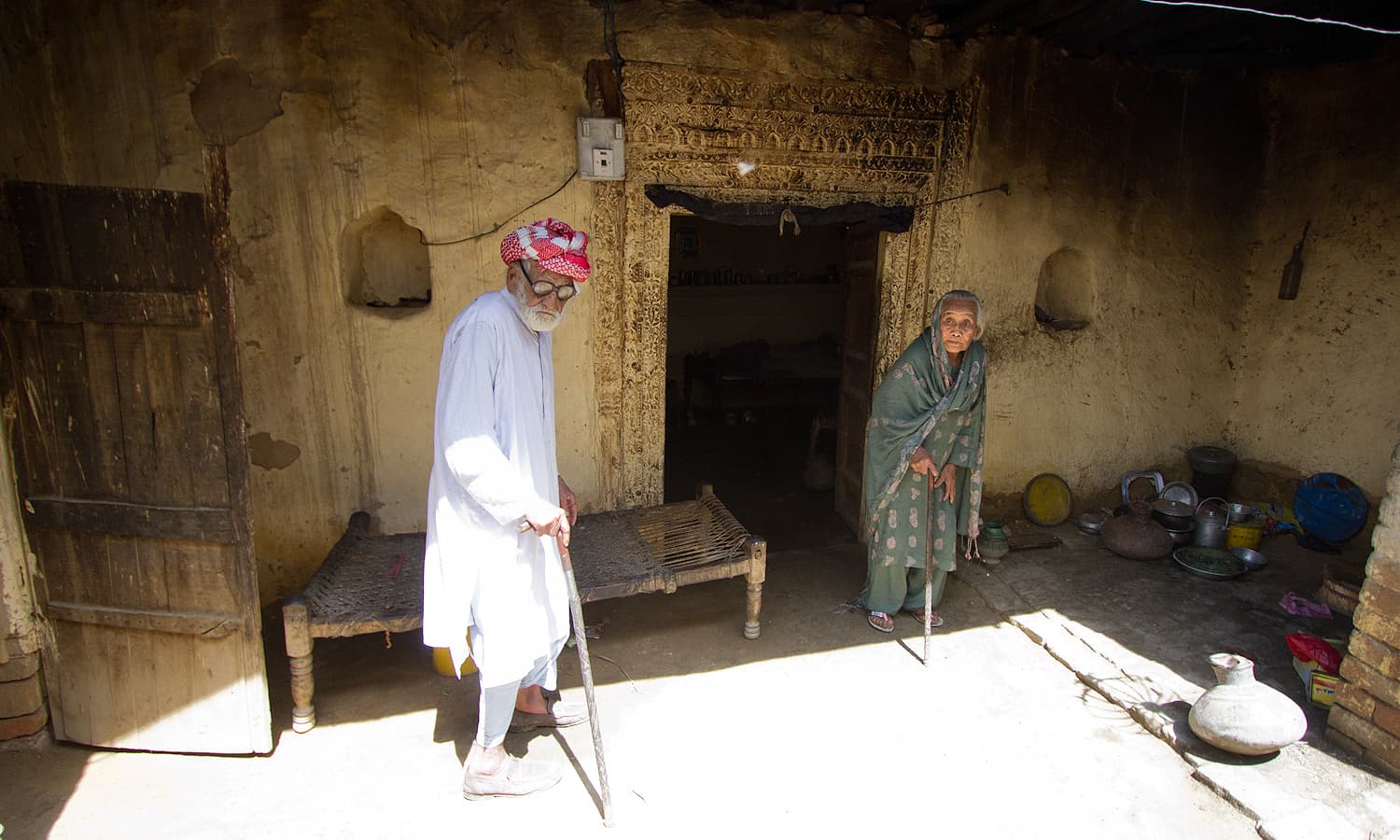
Neighbours and relatives, including men, women and children, start pouring in, followed by Mashoo and Chacha Kalu, both walking with the support of wooden sticks
Wearing a green shalwar kameez, Mashoo has a wrinkled face, blue eyes and a distinct visage, clearly distinguishing her as someone from the southeast. Chacha Kalu, wearing a simple white dress, a red turban and a thick pair of glasses, just stares at me as they sit in front of me
“There was an ongoing war in my country when I came here,” says Mashoo
“The Japanese were fighting in Burma during World War II and I was sent on a mission to combat,” Chacha Kalu begins to narrate
Mashoo remembers that she grew up in a city called Meiktila, in the center of Burma (Myanmar). “I was a Buddhist and used to go to a Buddhist temple to pray with my mother,” she recalls looking up at the ceiling, as pictures of her past flash in front of her eyes
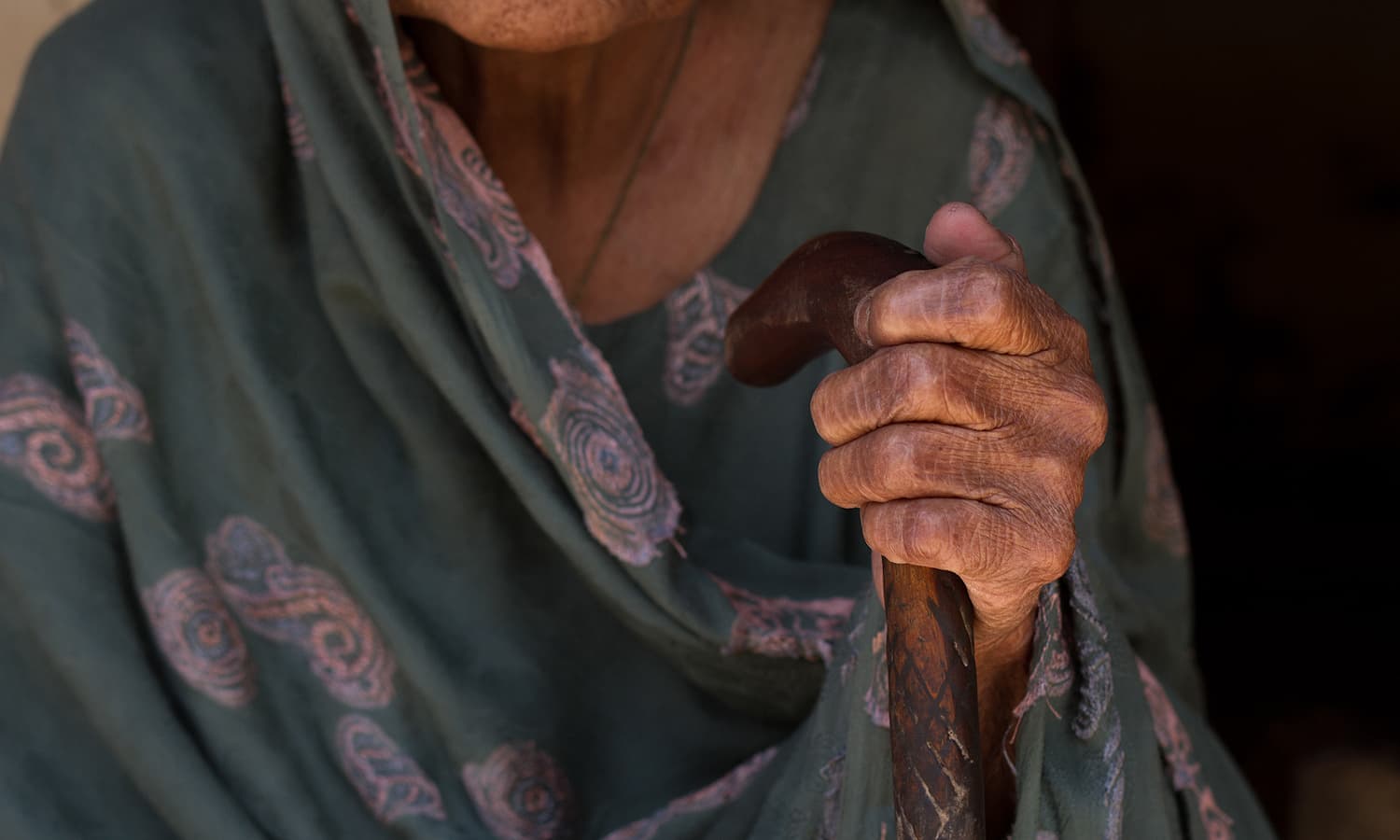
Sitting in the same room, Chacha Kalu’s grand nephews narrate the story that they have heard from their elders
“Chacha Kalu was young, handsome and was deployed at a barrack in Burma where a young Burmese girl, with long hair and blue eyes would provide food to the soldiers everyday. He fell in love with her.”
Chacha Kalu recollects his memories “She lost all of her family in the war and I brought her along with me to get married”. The chemistry in their relationship is beautiful
Chacha Kalu has developed a hearing impairment due to age and Mashoo has a visual impairment. She has to speak aloud to talk to him and despite aging significantly, she likes to make him tea
“I have my own kitchen and he only likes the tea that I make for him,” chuckles Mashoo
“He provided me a home and family,” she says, pointing at the people inside the room
“This is my family,” she says
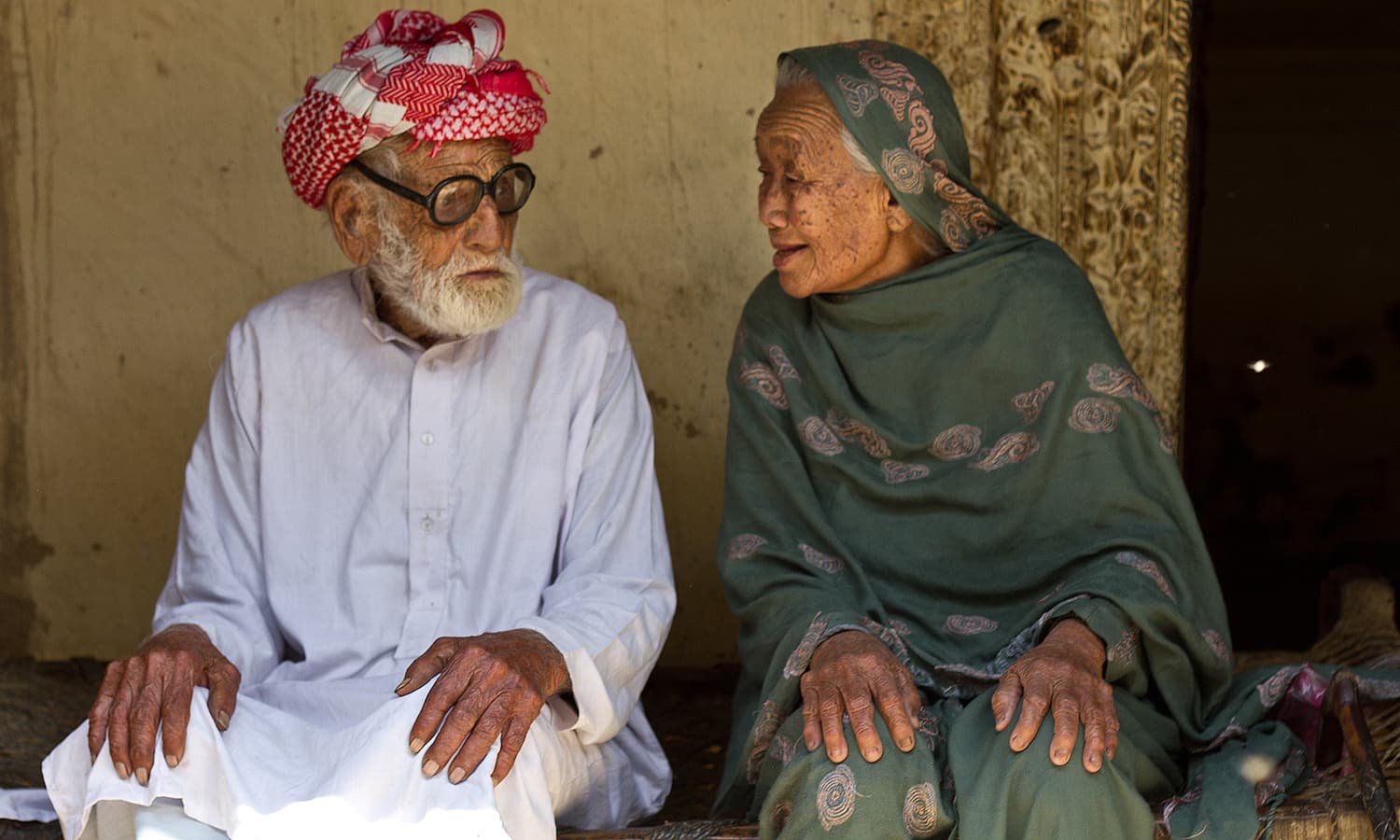
One person in the group said: “They never had any children, but we are their children”. A child standing up says, “I clean their dishes”; another one says, I take care of them by providing water in the house
As they all smile with contentment, I am pleased to see the love and affection these people have for each other
Masho speaks fluent Punjabi, which has become her first language. Having no contacts in Burma at all, she lives with Muzafar in a small old mud house. It is evident that their relatives and neighbours support them in every way
She converted to Islam when she moved to what was to become Pakistan. She does not remember her previous name that people used to call her by since that was 70 years ago, but Ayesha bibi is the name she chose when she converted and married Muzafar. In the neighbourhood, the children started calling her Maa Aasho (Mother Aasho), which later became Mashoo as a short form
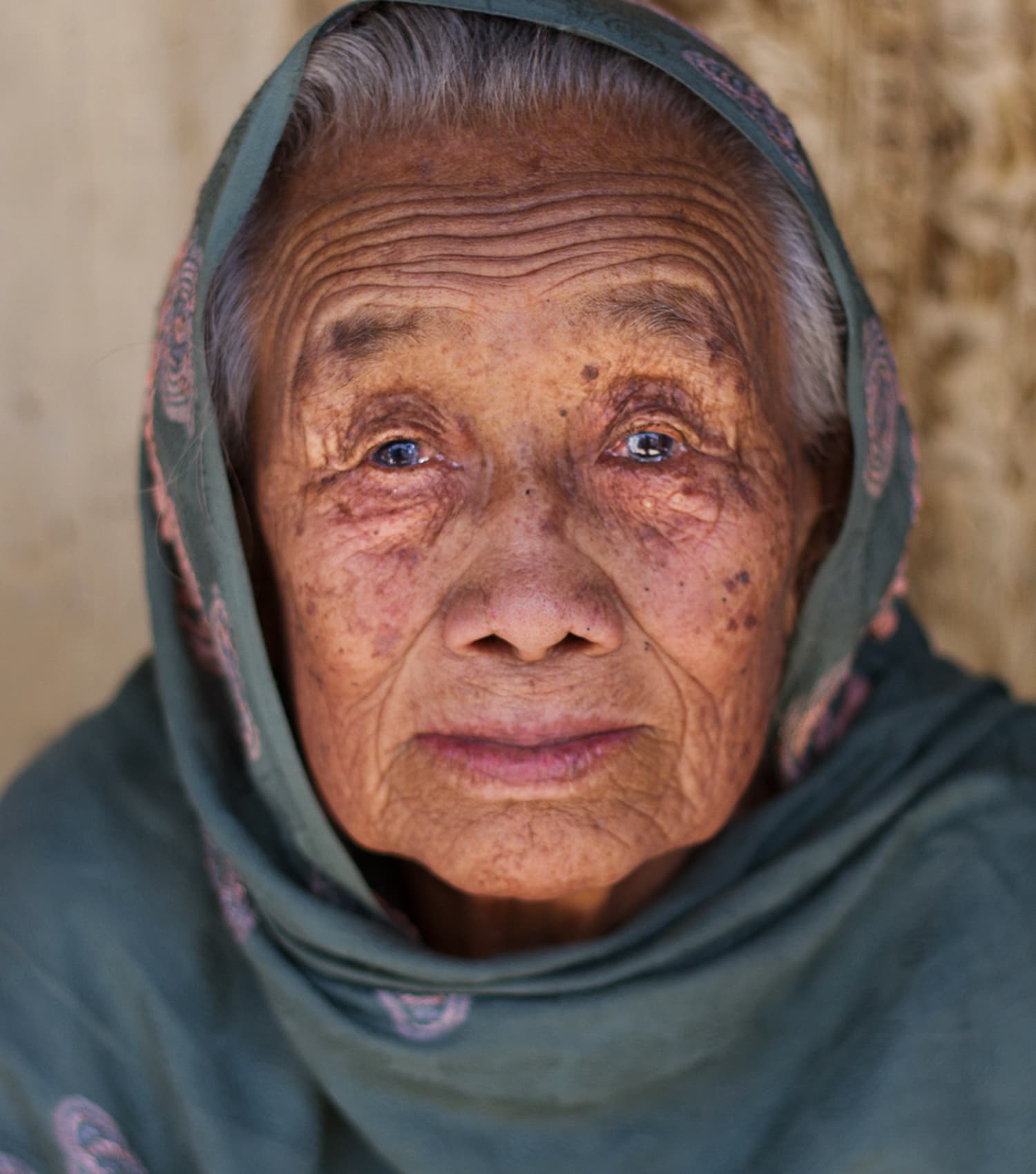
One of her neighbours, Mehwish Tariq, recalls her childhood memories with Mashoo. While growing up, I would go to her house and spend time with her listening to her stories. I would cook for her and she would always treat me as her child. Mashoo is my best friend
Chacha Kalu has performed Hajj and Mashoo wishes the same for herself but their only survival is through the pension fund that Muzafar receive as an ex-soldier of British Army from Commonwealth Ex-services Association of Pakistan
Mashoo received a new identity, from a Burmese-Buddhist to a Punjabi-Muslim in British occupied India, and later as a Pakistani after partition. But she says that as long as she is living with Muzafar, and in the same neighbourhood, the questions of identity do not matter to her
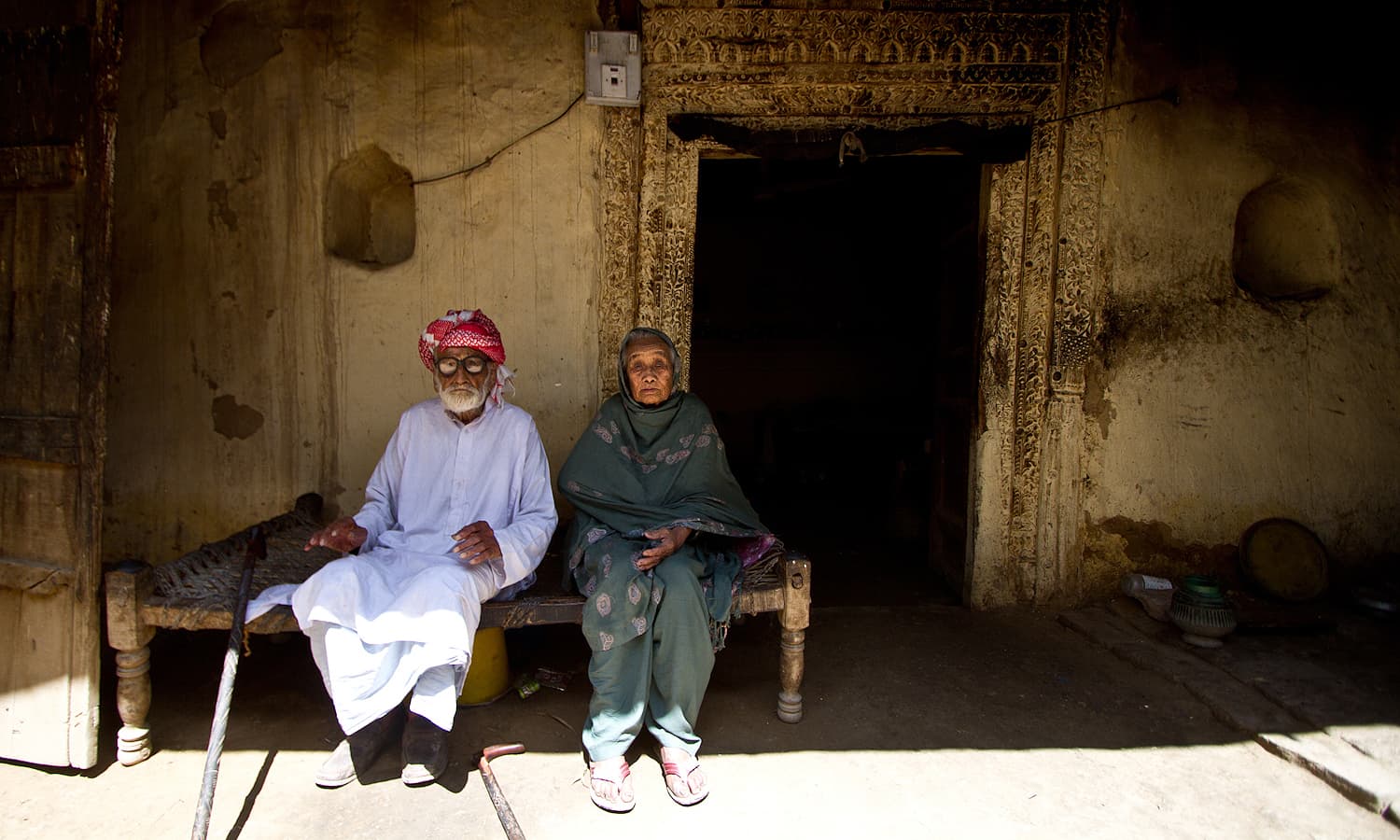
۔۔۔
Link
The soldiers from the British side came mostly from British India and amongst the forces was a 20-year-old boy named Muzafar Khan. Hailing from the district of Chakwal in present day Pakistan, he fell in love with a Burmese girl during his tenure in Burma

Muzaffar (Chacha Kalu) is pictured at his house in Chakwal. - Photo by author
Young Muzafar was deployed as a solider in the ordinance corps of the British Indian Army in mid 1940s and was sent to Burma on a mission along with other soldiers to combat Japanese forces under Field Marshal William Slim
The Burmese girl he fell in love with later became his wife and now they live together in a small neighbourhood of Dhudial, a town 43 kilometres south of the Grand Trunk Road on main Mandra-Chakwal Road in the Chakwal district of Punjab
The tale of their love and how they came to Dhudial revolves around the neighbourhood with slight variations narrated by their relatives, friends and the couple itself
92-year-old Muzafar is now known as Chacha Kalu in his neighbourhood while Ayesha Bibi who is now 84 is referred to as Mashoo
The memory of mid-1940s has faded with time and the only truth surviving the two is that they are married with no children and Mashoo left her entire life in Burma to settle in British occupied India.
As I walk through narrow alleys of the neighbourhood, I am asked to enter a small house with a rectangular room that has a wooden sofa on one side and a wooden charpoy on another

Neighbours and relatives, including men, women and children, start pouring in, followed by Mashoo and Chacha Kalu, both walking with the support of wooden sticks
Wearing a green shalwar kameez, Mashoo has a wrinkled face, blue eyes and a distinct visage, clearly distinguishing her as someone from the southeast. Chacha Kalu, wearing a simple white dress, a red turban and a thick pair of glasses, just stares at me as they sit in front of me
“There was an ongoing war in my country when I came here,” says Mashoo
“The Japanese were fighting in Burma during World War II and I was sent on a mission to combat,” Chacha Kalu begins to narrate
Mashoo remembers that she grew up in a city called Meiktila, in the center of Burma (Myanmar). “I was a Buddhist and used to go to a Buddhist temple to pray with my mother,” she recalls looking up at the ceiling, as pictures of her past flash in front of her eyes

Sitting in the same room, Chacha Kalu’s grand nephews narrate the story that they have heard from their elders
“Chacha Kalu was young, handsome and was deployed at a barrack in Burma where a young Burmese girl, with long hair and blue eyes would provide food to the soldiers everyday. He fell in love with her.”
Chacha Kalu recollects his memories “She lost all of her family in the war and I brought her along with me to get married”. The chemistry in their relationship is beautiful
Chacha Kalu has developed a hearing impairment due to age and Mashoo has a visual impairment. She has to speak aloud to talk to him and despite aging significantly, she likes to make him tea
“I have my own kitchen and he only likes the tea that I make for him,” chuckles Mashoo
“He provided me a home and family,” she says, pointing at the people inside the room
“This is my family,” she says

One person in the group said: “They never had any children, but we are their children”. A child standing up says, “I clean their dishes”; another one says, I take care of them by providing water in the house
As they all smile with contentment, I am pleased to see the love and affection these people have for each other
Masho speaks fluent Punjabi, which has become her first language. Having no contacts in Burma at all, she lives with Muzafar in a small old mud house. It is evident that their relatives and neighbours support them in every way
She converted to Islam when she moved to what was to become Pakistan. She does not remember her previous name that people used to call her by since that was 70 years ago, but Ayesha bibi is the name she chose when she converted and married Muzafar. In the neighbourhood, the children started calling her Maa Aasho (Mother Aasho), which later became Mashoo as a short form

One of her neighbours, Mehwish Tariq, recalls her childhood memories with Mashoo. While growing up, I would go to her house and spend time with her listening to her stories. I would cook for her and she would always treat me as her child. Mashoo is my best friend
Chacha Kalu has performed Hajj and Mashoo wishes the same for herself but their only survival is through the pension fund that Muzafar receive as an ex-soldier of British Army from Commonwealth Ex-services Association of Pakistan
Mashoo received a new identity, from a Burmese-Buddhist to a Punjabi-Muslim in British occupied India, and later as a Pakistani after partition. But she says that as long as she is living with Muzafar, and in the same neighbourhood, the questions of identity do not matter to her

۔۔۔
Link
